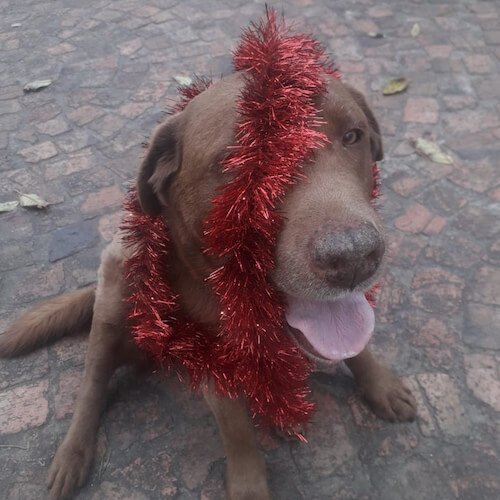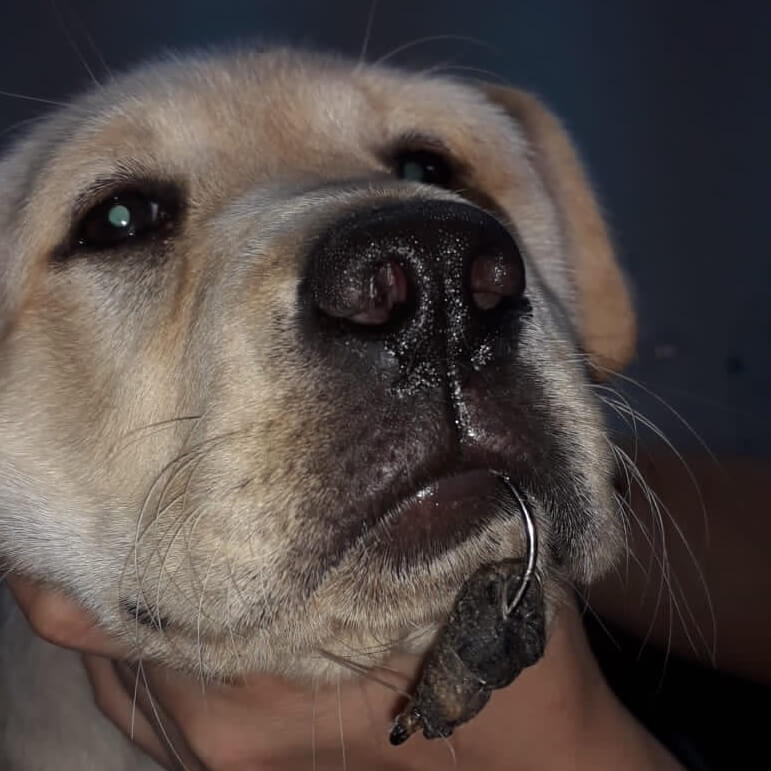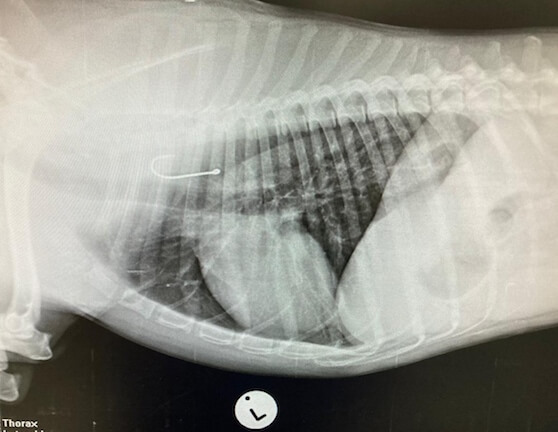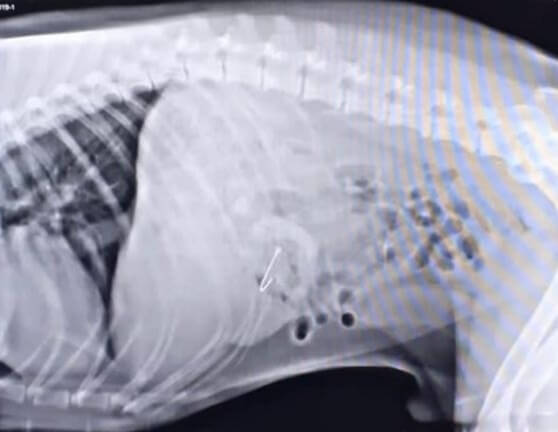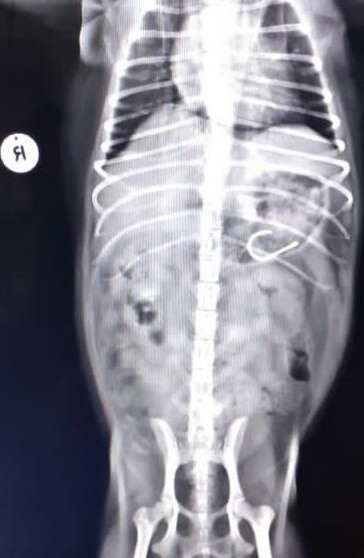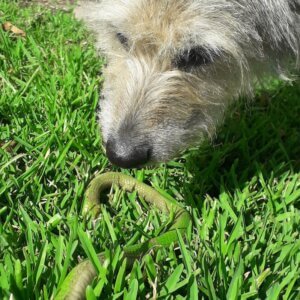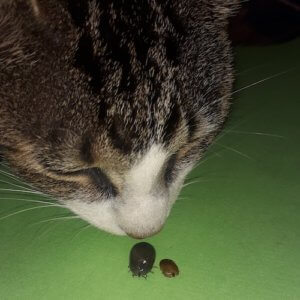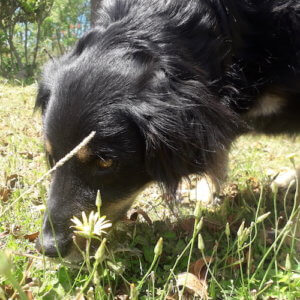As we get to crack open the wine, eat that box of chocolates and tuck into other delicacies, we thought we’d reflect on some common festive fumbles leading to late night vets visits. While we may appreciate the finer things, dogs don’t always have the same approach to life. Where we see hoovers, practically inhaling everything in sight, they consider themselves connoisseurs, grabbing life by the horns and ingesting everything without a moment’s hesitation or thought to any consequence.
We will be focussing on the three most infamous festive follies we see in our practice:
Foreign bodies
Toxicities
Illnesses
Foreign Bodies
Tinsel, baubles, gifts, food wrappers, children’s toys, shoes, items of clothing, rocks – everything has the potential to be tasty and therefore must be sampled by them. Cat owners, don’t look away just yet. Dogs may be the most common culprits; however, cats, too, have been known to ingest a thing or two. While some things will pass through uninterrupted, this, unfortunately, isn’t always the case. Some objects can get stuck in the gastrointestinal tract resulting in a foreign body obstruction, a potentially life threatening condition where surgical intervention is the only form of treatment.
Symptoms to monitor for if you are worried your furry friend has ingested something he or she shouldn’t have, include but is not limited to:
- 1. Vomiting
- 2. Diarrhoea
- 3. Decreased appetite
- 4. Painful abdomen
- 5. Lethargy or depression
Time can be critical and a consultation with a vet is always recommended if a foreign body ingestion is suspected. A clinical examination will be performed, with x-rays potentially being the next step if all other possibilities of your dog’s symptoms have been ruled out.
Fish hooks are a surprisingly common foreign body we see – but more on that later!
Toxicities
As mentioned, our cats and dogs consider themselves to be a 4-legged Sherlock Holmes investigating everywhere and everything which can result in them ingesting or being exposed to a toxin. Unfortunately, many of these toxins are found right here in our homes. Whilst these things may not always be of any harm to us, it just isn’t always the case with our fur-kids.
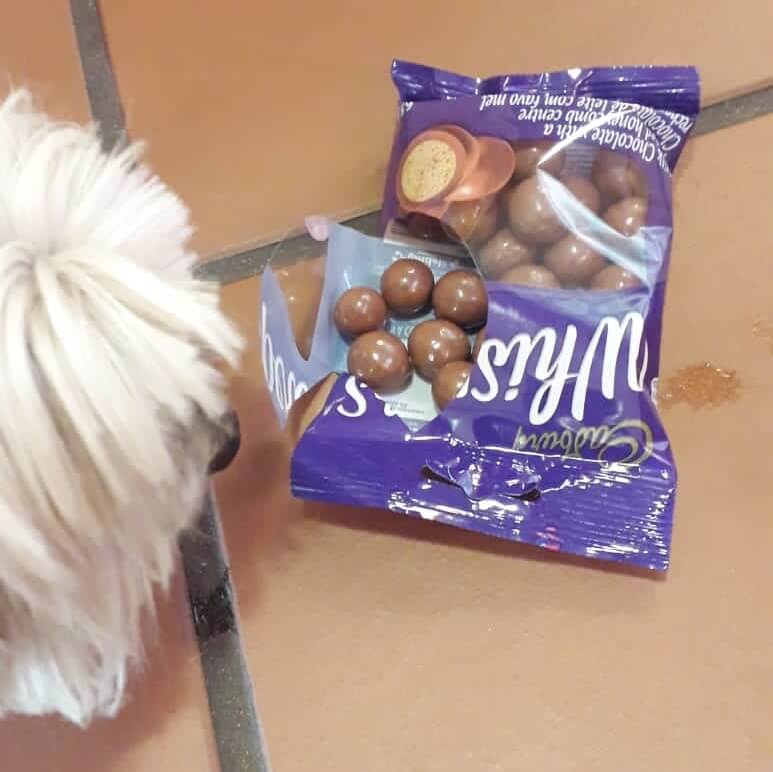
The most frequently reported poisons are:
- Food - including but not limited to chocolate, artificial sweeteners (xylitol), raisins/grapes, onions. Avocadoes can cause gastric upsets in dogs as well as the pit being ingested (Foreign body alert!)
- Insecticides/Pesticides
- Rodenticides/Rat bait
- Human medication (both over the counter and prescription)
- Household cleaners
Clinical signs can vary from gastrointestinal upsets to cardiovascular effects to central nervous system signs, (i.e. seizures, tremors)
It is always important to take care when handling these things and to ensure that everything is stored correctly and away
Illnesses
Rather chuck all that mouth-watering greasy Christmas dinner left overs safely in the bin – it could be the cause of sleepless nights for both you, your furry companion, and your vet! Dogs don’t tolerate dietary fat as well as we do. Excessively fatty meals can cause inflammation of the pancreas (pancreatitis), an acutely painful condition with a list of complications, as well as hepatitis, diabetes, and plain gastroenteritis.
Our large breed dogs are especially prone to gastric dilatation and volvulus (GDV) – a condition where the stomach twists on itself due to too much food ingested too quickly (who can resist not inhaling a big plate full of roast chicken and baked potato?)
Now back to those fish hooks..
With summer rolling in swiftly and The Garden Route boasting exquisite beaches, we know the sea and surf is where it’s at. Sadly, we have seen numerous times how a sunset stroll with your pooch can take a wrong turn when your pet decides the smelly old fish bait is a delightful treat, swallowing everything up before you have a chance to intervene. In fact, in the last month or two, we’ve seen 5 dogs with fish hooks well and truly lodged, but thanks to the skilled hands of our doctors, things ended happily.
Should this occur, we advise veterinary intervention as soon as possible. Whether the fish hook has found its place in the mouth, or been swallowed down, it is best not to try and remove it yourself. As is the nature of the fish hook, the barb has usually lodged itself in and trying to simply pull it out can cause a lot more damage. If fishing line is still attached, it is best not to cut it off but to try and keep it in place as it can be useful in fishing out the hook. Excuse the pun.
Concluding 2020
We always hope for happy and healthy animals, however, if we’ve learned anything this year, it’d be that life is unpredictable – and should any unforeseen circumstances occur, we are available to help you and your beloved pet in need. We will be consulting as usual throughout the festive season, with a vet available to you for after hour emergencies as well as on Sundays and public holidays.
2020 – what a year it has been! As the year draws to an end it is natural for us to reflect on the year gone by, and oh my, are things looking different to what they did a year ago. While this year has been one of turmoil and unpredictability, we really hope that you’ll get to take a breather, sit back with your loved ones, furry companions included, and that the end of this year will bring calm and peace to your home. We want to thank you for your kindness and patience as we have had to navigate through these unprecedented times. We are so honoured to be serving the Knysna, Sedgefield and Wilderness surrounds.


